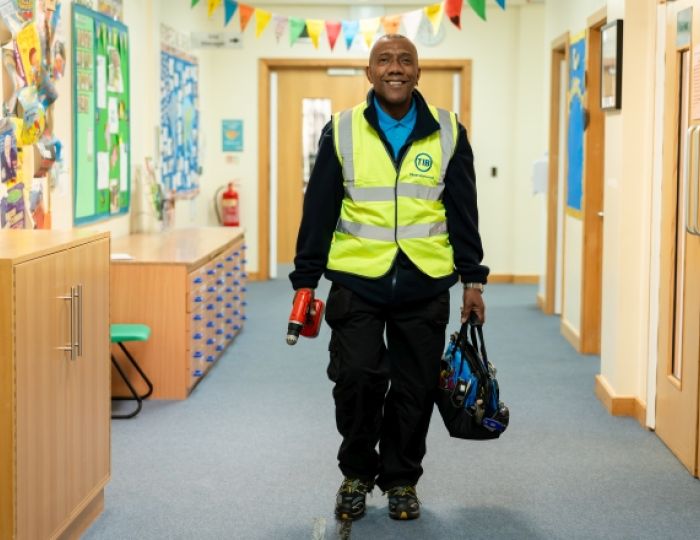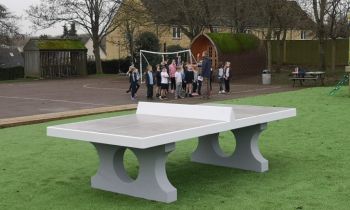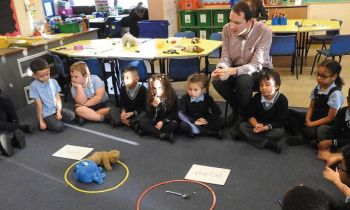In line with findings from the Education Endowment Foundation on the impact of Covid, it quickly become apparent in our school that the pandemic had taken a toll on the mental health of many of our pupils, parents and carers.
As children returned post-lockdown, we noticed they were less resilient when presented with challenging tasks and did not persevere in lessons as often as before. The general lack of focus made it increasingly difficult for staff, and for me, to manage behaviour due to an acute feeling of restlessness in the classrooms. We decided we urgently needed to undergo a transformation when it came to managing discipline and pupil conduct.
Searching for expert help
Our first step towards this was to deepen our understanding of growth mindset and in particular the work of professor Guy Claxton and his extensive research on how young people can become better learners. His work lays out four main learning dispositions (resilience, resourcefulness, reflectiveness and reciprocity) and while it was first published some time ago, I still found it eye opening and believed we could tweak his theories to suit out needs and begin a transformation of our behaviour culture. The problem was we weren’t entirely sure how best to take this forward.
I then discovered the Department for Education had launched the Behaviour Hub programme, as part of a £10 million initiative designed to support a culture of good behaviour, routines and structure in schools. As our focus was to reduce the impact of disruptive behaviour and to increase learning time for the children, I signed up Howbridge for the programme.
Achieving clarity
The programme helped us gain clarity as to what we wanted from our new behaviour culture, and the challenges we needed to overcome to get results. I wanted to focus on the relationships between teachers and children, and it quickly became clear this would require a very personalised approach.
Topics covered by the Behaviour Hub - such as prevention and de-escalation strategies and consistent language frameworks - changed how staff and I responded to disruptive behaviours. If you were to visit our school now, you might notice the mini scripts staff have attached to their lanyards, which outline expected language, and the steps they are expected to follow when addressing specific behaviour scenarios.
For example, the restorative conversations between teachers and pupils follow four steps. First the pupil is given the chance to openly share what they believe to have happened. Then they are encouraged to explore the impact of their actions, before talking through how they might improve their behaviour and re-establish respect in the classroom. Since introducing the mini scripts, we’ve noticed that pupils respond to the consistent language we use and have a better understanding of what is expected from them.
Smoothing transitions
One of the strategies we started using for children who struggle to transition from break and lunchtimes to the classroom was to assign a key adult from the school to collect them from the playground and help them settle down before returning to lessons. It was prevention strategies such as this that helped us establish clarity on the practical steps we could take to tackle disruptive behaviours.
The effort to ensure consistency in our communication with all pupils continues, even after the training. There are challenges in getting every member of staff on board with a new whole-school behaviour culture, and it has taken longer than expected to gain support from all quarters, but the vision I have is slowly coming to fruition. We are making progress and staff now feel more empowered.
Working with lead schools
Alongside professional training the Department of Education introduced us and other participants to a Lead School, which was further along in its behaviour culture journey. A team from Howbridge, including me, went to visit so we could observe its strategies in context and see how implementation was a gradual process. It was incredibly useful as, although before this networking event we had some seeds of ideas on what we wanted our behaviour process to look like, seeing practical solutions in action helped us build a picture of how these could be modified to fit our needs.
The same Lead School later hosted a workshop at Howbridge on the benefits of a growth mindset and how it can encourage self-belief, help you focus on opportunities and give you the confidence to utilise feedback.
Embedding new behaviours
After the training, we started drafting our new behaviour policies, so we could be confident our processes reflected our growth and what we had learnt from the Behaviour Hub programme. Our improvement plan focuses heavily on maximising learning time for all children, which was one of our long-term goals when we signed up for the initiative.
Since the training, we have seen marked improvements. Although we are in the early days of monitoring behaviour management in classrooms, we recently compared results from November 2021 and November 2022 and reported behaviour incidents have decreased from 86 to 35.
These are very promising results!
How to improve your behaviour culture
- Don’t be afraid to accept help! Changing something as big as an entire behaviour culture can be overwhelming. You are more likely to reach your goals if you allow experts to guide you.
- Pinpoint what it is you want to change. Is it maximising learning time for the children? Or is it improving behaviour during break times? Keep this specific focus in mind.
- Not everybody will share your vision straight away. Change is difficult, not just for children but for staff members too. It may take a while to secure the confidence of your entire workforce when it comes to changing processes and rewriting behavioural policies. Don’t let hesitation dissuade you from making the changes.
- Establish long-term and short-term goals. Having some clarity on what is a quick fix and what is likely to take longer to change can help with motivation. If your short-term goals are coming to fruition and you can see the difference in behaviour, you’re more likely to feel motivated to go for the long-term goals.
- Keep parents in the loop, but don’t feel obliged to include them in every single update. Changing an entire behavioural process is a shift in culture, not an overnight fix.
Lisa Dale is headteacher of Howbridge Church of England Junior School. For further information, visit the Education Endowment Foundation website










